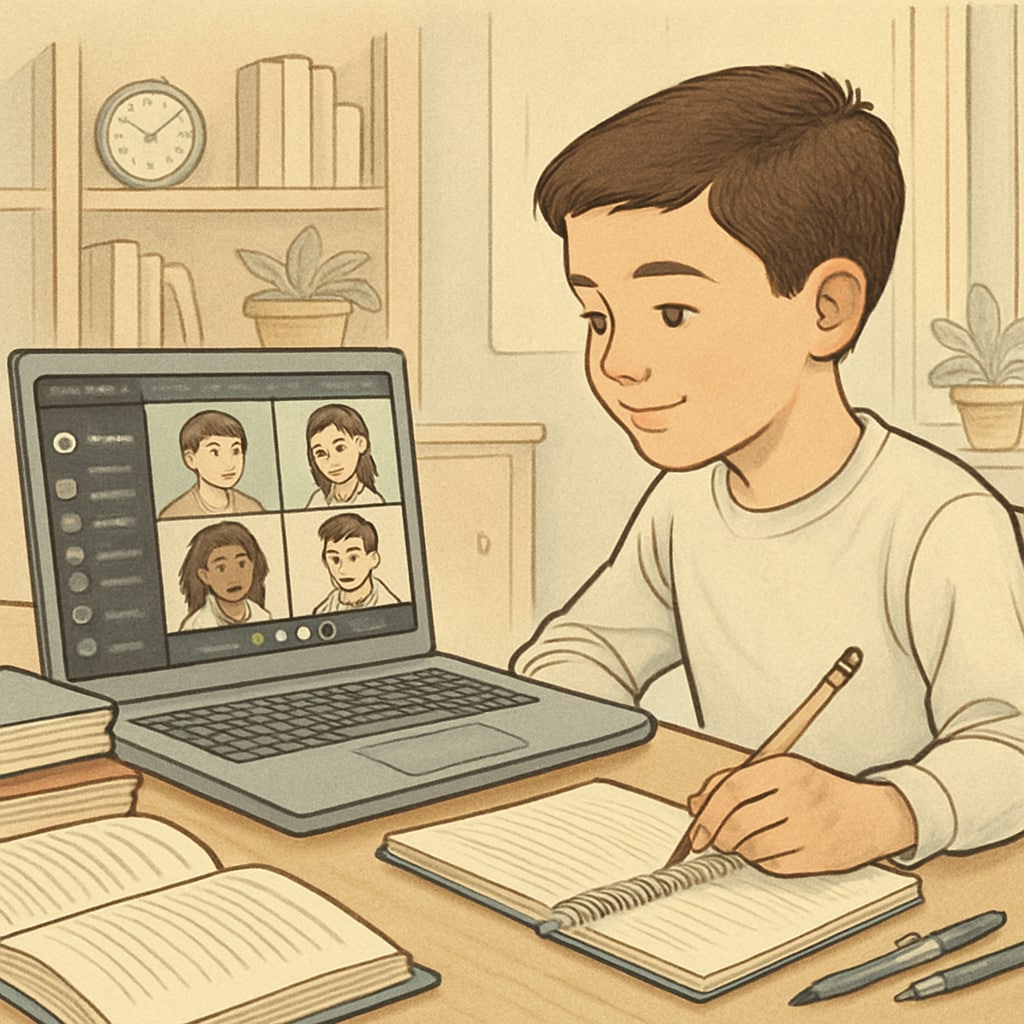Many K12 students struggle to find effective ways to enhance their learning, often feeling isolated in their academic journey. By studying how college students, particularly those at the University of Houston, utilize study groups and platforms like Discord, younger learners can discover innovative strategies to improve collaboration and learning efficiency. This article discusses how K12 students can borrow these methods to develop structured learning communities, ultimately fostering skills that will serve them in both university settings and their future careers.
What Makes College Study Groups Effective?
College study groups, such as those organized by students at the University of Houston, offer a structured yet flexible approach to learning. These groups often focus on collaboration, shared resources, and peer accountability. Students come together to discuss course materials, clarify difficult concepts, and prepare for exams. The success of these groups lies in their ability to combine academic focus with social engagement, creating an environment where learning feels less daunting and more interactive.
For example, the University of Houston encourages students to form study groups through both formal campus resources and informal connections on platforms like Discord. Discord, a popular communication tool originally designed for gamers, has evolved into an effective collaboration platform for students. It supports features such as voice chat, text channels, file sharing, and more, making it ideal for organizing virtual study sessions.

How K12 Students Can Benefit from These Methods
While K12 students often rely on traditional classroom settings and individual study, introducing college-style study group methods can help them achieve a more dynamic learning experience. Here are several ways K12 students can benefit:
- Collaboration Skills: Working in groups teaches students how to communicate effectively, delegate tasks, and solve problems collaboratively.
- Accountability: Study groups encourage members to stay on track with their goals, as peers often motivate one another to complete assignments and prepare for tests.
- Resource Sharing: Group members can share notes, links to useful websites, and other learning materials that enrich their understanding.
By adopting platforms like Discord, K12 students can organize virtual study groups regardless of physical location. This opens up opportunities for remote collaboration, especially for students in underserved areas who may not have access to local academic resources.

Steps to Create Structured Learning Communities for K12 Students
Building effective study groups for K12 students requires careful planning and structure. Here is a step-by-step guide to get started:
- Define Objectives: Determine the purpose of the study group. Are students preparing for exams, completing assignments, or exploring a specific subject?
- Select Members: Choose a small, dedicated group of peers who share similar academic goals and schedules.
- Establish Rules: Set guidelines for group behavior, participation, and meeting schedules to maintain productivity.
- Leverage Technology: Use platforms like Discord to create virtual spaces for communication and collaboration.
- Track Progress: Monitor the group’s achievements over time and adjust methods to improve efficiency.
For additional tips, educators and parents can refer to resources like Collaborative Learning on Wikipedia and Study Skills on Britannica, which provide insights into effective study group dynamics.
Preparing K12 Students for Future Academic Success
By introducing structured study groups and collaborative platforms like Discord, K12 students can develop essential skills that will benefit them in higher education and beyond. These skills include critical thinking, teamwork, and adaptability—qualities highly valued in university and workplace settings.
Furthermore, learning to navigate digital platforms for collaboration prepares students for the increasingly virtual nature of education and professional environments. Encouraging K12 students to adopt these methods early can bridge the gap between traditional classroom learning and the collaborative demands of college life.
In summary, K12 students can significantly boost their learning effectiveness by borrowing strategies from college study groups, such as those at the University of Houston. Leveraging tools like Discord allows them to create dynamic and inclusive learning communities, empowering them to take control of their education and prepare for future challenges.
Readability guidance: Use short paragraphs and lists to summarize key points. Ensure smooth transitions between sections to enhance flow. Keep sentence structures simple and avoid excessive passive voice.


